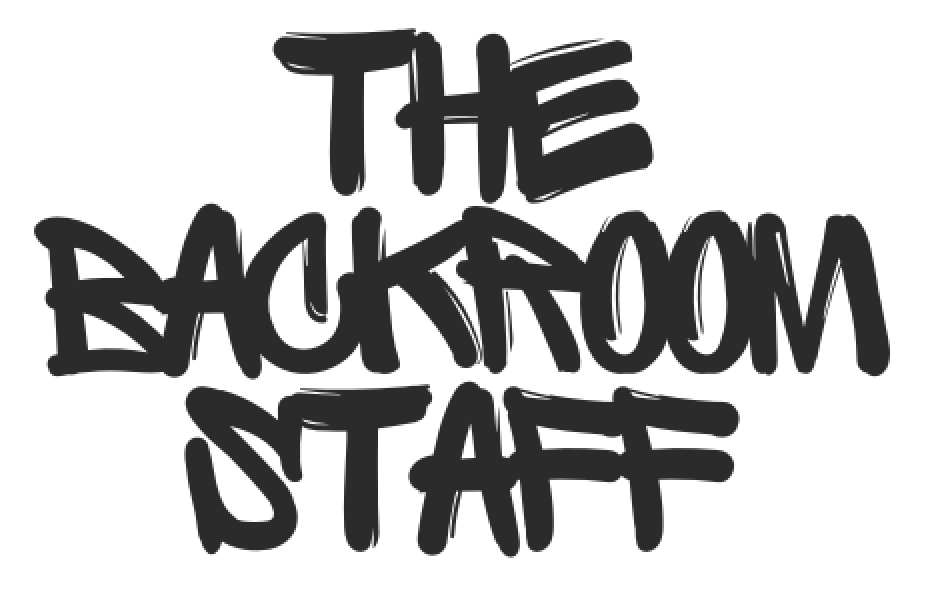Out of all the jobs in football, players and coaches face the most pressure - and often the least security. For coaches especially, the timeline can be brutally short, sometimes with just days to deliver the right results. I’m fascinated by the careers of coaches and the reality of the short term, nomadic and almost ‘journeyman’ nature of their work and life.
Currently at Sabah FK in the Azerbaijan Premier League - the 10th country he’s worked in - Valerio Zuddas is a true football globetrotter. His résumé includes some of Europe’s most demanding and historic clubs like Partizan Belgrade, Hajduk Split and Hibernian.
In this interview, Valerio reflects on his path across Europe, from Edinburgh to Baku, and the day to day realities - and pressures - of coaching first-team football at clubs where winning is demanded.
The interview has been condensed and lightly edited for grammar and clarity.
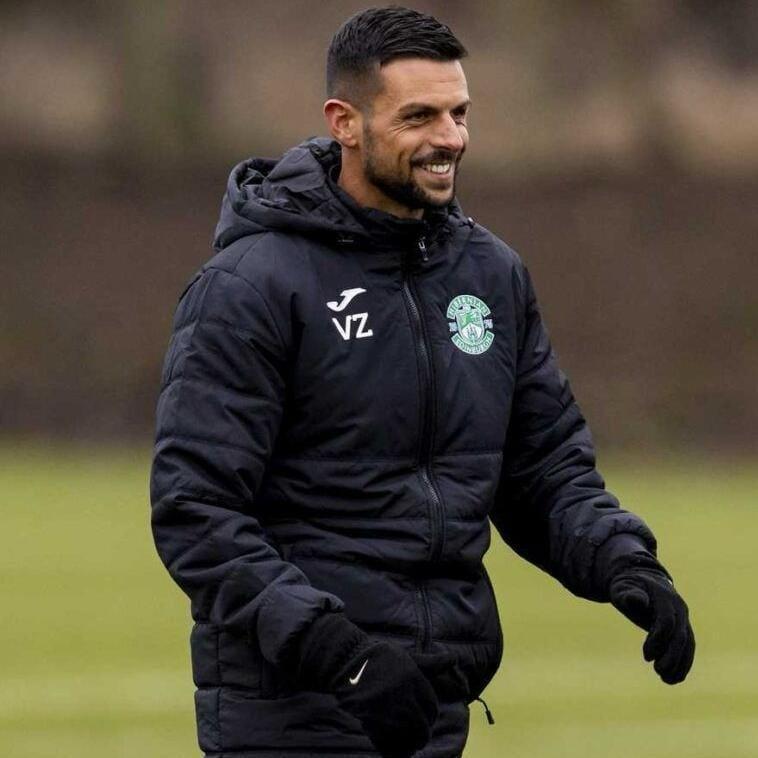
[ How did you get into coaching? ]
I was playing football in the lower leagues in Italy and I saw, around age 25, that I was going down a path. I realized I probably wouldn’t be able to play at the top level, which is the dream for everyone. Instead of continuing a career in the lower leagues, I rather decided to stop playing and start a coaching career, which was not easy and a bit painful because you need to admit to yourself that you are not able to arrive at a certain level - but in the end, it was the right choice.
As a player, I had always been interested in the details of the game and curious about how and why the coaching staff was doing things. I wasn’t just the kind of player who goes to training and then that’s it, I was into the process, I liked to understand the meaning and the purpose of each concept.
I was really close to one staff member at the club I was playing at, and I started to ask questions about training methodology and so on. Then, step by step, I got more into coaching.
[ What was your first coaching role? ]
I started immediately working with senior players in first teams. I started in the team with the coach I mentioned before. I started in the third division in Italy, which is a professional level and we had a mix of experienced and young players.
I had a ‘mixed’ role, because when the staff is small, you need to cover more roles and be able to do more things at the same time (this was also a big learning step for me since the beginning). I was doing everything, from leading the physical preparation, to analyzing opponents and our game, to working on the pitch individually with players 1to1 and with different units or team tactical training. After a couple of seasons in Italy in the third division, I started my journey abroad.
[ How did you get this first opportunity abroad? ]
At the start, I was only focused on the Italian market. I didn't even consider the idea of going abroad, but then I found myself without a job one summer, I didn't find anything and it was already August. The preparation was almost finished, all the teams had finalized their staff. Then, I received a call, I remember it was like 2 o’clock, in the middle of the night, by this guy who said he needed an assistant manager in Georgia.
It happened really fast, two days after the call, I was on the plane. I didn’t know much about the league and the country but I jumped at the chance and went - and it was a great choice. I was surprised by the league, by the players - there were a lot of talented players, and nowadays, many clubs around Europe are looking at players in that market.
This first experience abroad, even though it was not one of the main leagues in Europe, was amazing and completely opened my mind to the football world.
[ How does it look when you meet a coach and think, ‘we might work together someday’? ]
Of course, I didn't play at the elite level, so I didn’t have great connections at the beginning. I just had my teammates and my coaches, but we’re speaking about lower leagues.
From there, it came really naturally, because once you start to work, once you are in the game, you meet people and if you’re always professional and you’re good with people, it comes naturally. I can’t say there is one strategy to ‘make it’ but if you do a good job, people - colleagues, coaches, directors, players - will hear about it and another job will come, for sure.
I’m in contact with almost all of the coaches I’ve worked with, and we still have a really good relationship with many of them. I like to have a human connection beyond the working relationship. I think it creates stronger bonds and makes the job easier. Not to be necessary friends each time but have understanding of each other and respect and appreciate each other as people not only as coaches. At the beginning, I had a ‘list’ of coaches that I wanted to work with, that I’ve been scouting and analyzing. Valdas was one of those, he was at Hajduk Split after me, I was really interested in what he was doing and we met personally once and we have always stayed in contact. Then, one day, he called me and now we’re working here in Sabah. This is our second season together.
"I can’t say there is one strategy to ‘make it’ but if you do a good job, people - colleagues, coaches, directors, players - will hear about it and another job will come, for sure"
[ How is it meeting the players for the first time, especially if they perhaps haven’t heard of you or the head coach before? ]
Well, at the beginning, of course, the people didn't know me, but the thing that helped me a lot was that I’ve always been almost the same age as the players and already being in a dressing room. Also, the fact that I speak different languages helped me to be a reference point also for the foreign players. I’m 36 now, I have gained experience and I coached players who played at the top level and I’ve always enjoyed the dressing room and got along really well with all of them.
In the last years, I’ve coached mainly in the Balkans and everyone is following these clubs, so it’s happened that in some clubs when I arrive, some of the players already know me.
I think it’s normal for the players, before a new coach arrives, to ask the agents or to other players in the team about the coach. So, they already know your reputation before you walk through the door.
[ How do the first days look when you arrive at a new club, a new country? How do you get settled in the first week? ]
It can happen that you get a call at night, get the offer and you have to be there for training in the morning! Especially if the call comes during the season, you don’t always have time to organize yourself, you need to get on a plane immediately.
But, by now, I'm pretty used to change. This is my 10th country in which I’m coaching, so I know how it goes, but still, the first days are always completely crazy. You’re thrown into a new place, you meet a thousand people on the first day, you’re probably living out of your suitcase and at the same time, you need to organize training, remember all the names and be effective. Maybe you arrived on a Thursday and on Sunday, you have a game, so you need to have a clear plan by then.
The first days, you work really, really hard, working until late into the night to get things done. There’s a really big sense of being practical and being effective, not only in the game plan - sometimes this is the last thing - but in the very basics of preparing a session. If training is in 30 minutes, the players are coming in, you need to be organized - you need to know where the cones are and prepare the pitch, you need to know the names of the players.
You also need to know the culture - for example, here, lots of the players are Muslim, so you can’t organize training during their prayer time. There are a thousand small - and big - things that you really need to be aware of to be ready from the start if you want to make a big impact.
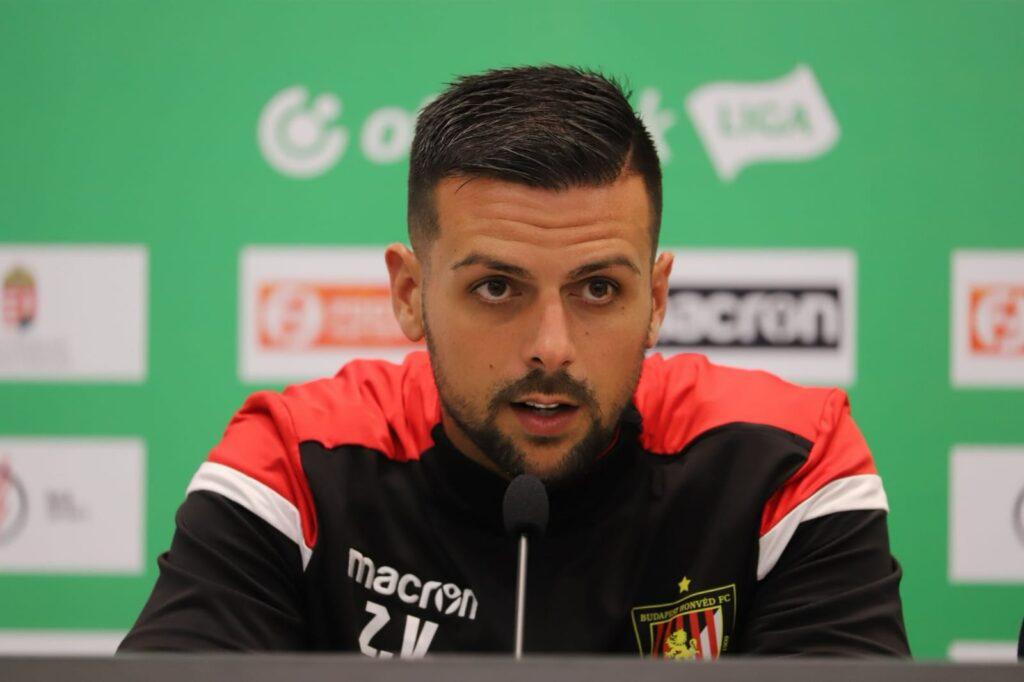
"It can happen that you get a call at night, get the offer and you have to be there for training in the morning!"
[ I imagine it’s happened where you’ve joined a club having never seen any of the players play - how can you catch up quickly when you might have the first game in just a few days? ]
That is also a big part. It can happen in two ways - maybe you already know that the coach is already in touch with this club and that the change might happen soon, so you already prepare yourself and watch the games in advance. But it can also happen that they call you from night to day, and a lot of times, I found myself in the airport watching games, on the plane watching games and up all night watching games. Just watching 3-4 games in a row and watching individual clips of players, just to have a base.
Over the years, it becomes easier and easier because you start to know the markets more, you know many of the players and the leagues. But, of course, it can happen where sometimes you don’t know too much about the club. You have to spend all your power to catch up. A lot of the time, the local staff helps a lot, especially in terms of giving info about the previous organization, who was playing or not before, what the idea was, and so on. That’s why it’s so important when you arrive to speak with the staff that’s already been there and include them in the decisions because they, of course, know the players and the league better than you.
[ How many staff members is a new head coach bringing into a new club? ]
It depends, of course, on how big the club is, how big the coach is and also the situation the club is in. I’ve joined a club that was just me and the head coach - so coach and assistant - and I’ve joined a club where we had, I think 10 or 11 people joining the coach. Sometimes, the coach has the power to bring 5 people, or 3 people, it depends on the club.
Maybe, if a coach joins during the summer and it’s a completely new project and lots of the staff has an expiring contract, the coach can bring in maybe 2 or 3 extra members compared to joining during the season when the budget is set, but again, it depends on the situation.
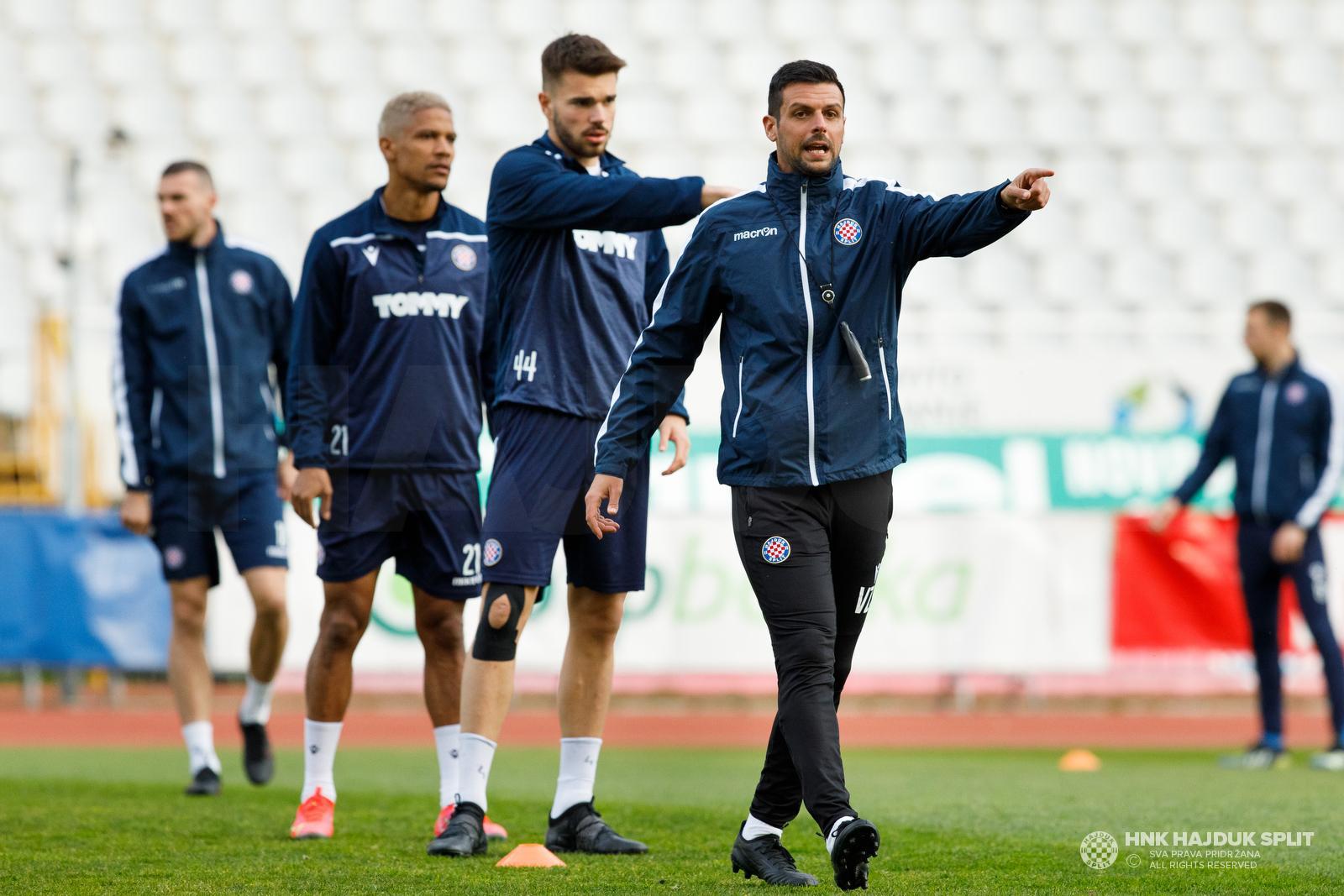
[ How is it integrating with the existing coaches who were there under the previous manager - have you experienced difficulties or pressure to earn their trust or respect? ]
My experience has pretty much always been with people who were helpful and open to cooperate and work together. And this is really helpful, especially in the beginning.
It can happen where someone part of the previous staff asks to have their contract terminated and that’s really fair and no problem at all but I’ve never seen it that someone stays on and tries to ‘sabotage’ from the inside.
It can be that you find people who’ve been at the club for many years and have a kind of ‘survivor mentality’ where they see you as just one more coach who is here now but will be sacked in a few months, and then another will come. You need to think about how to approach them and how they are going to see you, because maybe you go there full of power and energy, but in their eyes, you’re just one of the million coaches they’ve already seen. So, you need to show them they are important, let them do their job and involve them so you can take the most from them. It makes no sense to just cut people off from the start.
[ How has your role and responsibilities as assistant changed with different coaches? Are you a ‘specialist’ in one topic? Is this something that’s defined, or agreed upon, in advance? ]
As I said, it depends on how many people are on the staff. I’ve worked for many years now as an assistant manager and have had all the duties from setting the training to pregame, postgame, decisions in the game, individual work, work with groups, all of it.
In the last years, I’ve become really passionate about the defensive organization, so alongside all the other duties I have as assistant manager, I take care of that. But it can change coach by coach, depending on what the coach wants.
It's really important to define your role clearly and know what the coach wants from you and what they expect from you. Some coaches like to be the one leading the sessions and some prefer to delegate a lot of the work and oversee everything, it just depends on their idea about how the coaching staff should work.
With Valdas, I’ve really enjoyed it because he gives me a lot of freedom and I can implement my ideas. Of course, you always need to align your ideas with the head coach, but I’ve had 2 or 3 coaches - and Valdas is one - who have really allowed me to work as I want.
"It's really important to define your role clearly and know what the coach wants from you and what they expect from you"
[ After working in all these new countries with new players and new cultures, do you think that football is just kind of the same everywhere now, or are there still distinct differences between e.g. your work in Serbia - and what works there - vs your work in Azerbaijan? ]
I think it’s definitely still different, yes.
In Eastern Europe, I can say that the mentality is pretty similar, but each country has different aspects, different shades in terms of culture and how they live the sport. Sometimes, the culture can affect the way we organize training or the way we speak to the players or even the way we play.
At Partizan, for example, the club has historically played with a back 4, so you cannot think about a lineup with a back 3. And when you play at home, you know you need to press the opponent - you cannot wait and try to counter. Teams that come to play in Belgrade know that you are going to press because if you don’t and after 20 minutes you haven’t scored a goal, the fans will start to boo, you’ll be under pressure.
The same is for clubs with different expectations - maybe they are fighting for mid-table or against relegation, and you need to have a different approach. The way the fans and the people live football is different, at Hajduk in Croatia, it was completely different from Hungary, for example, and this can affect the style of play.
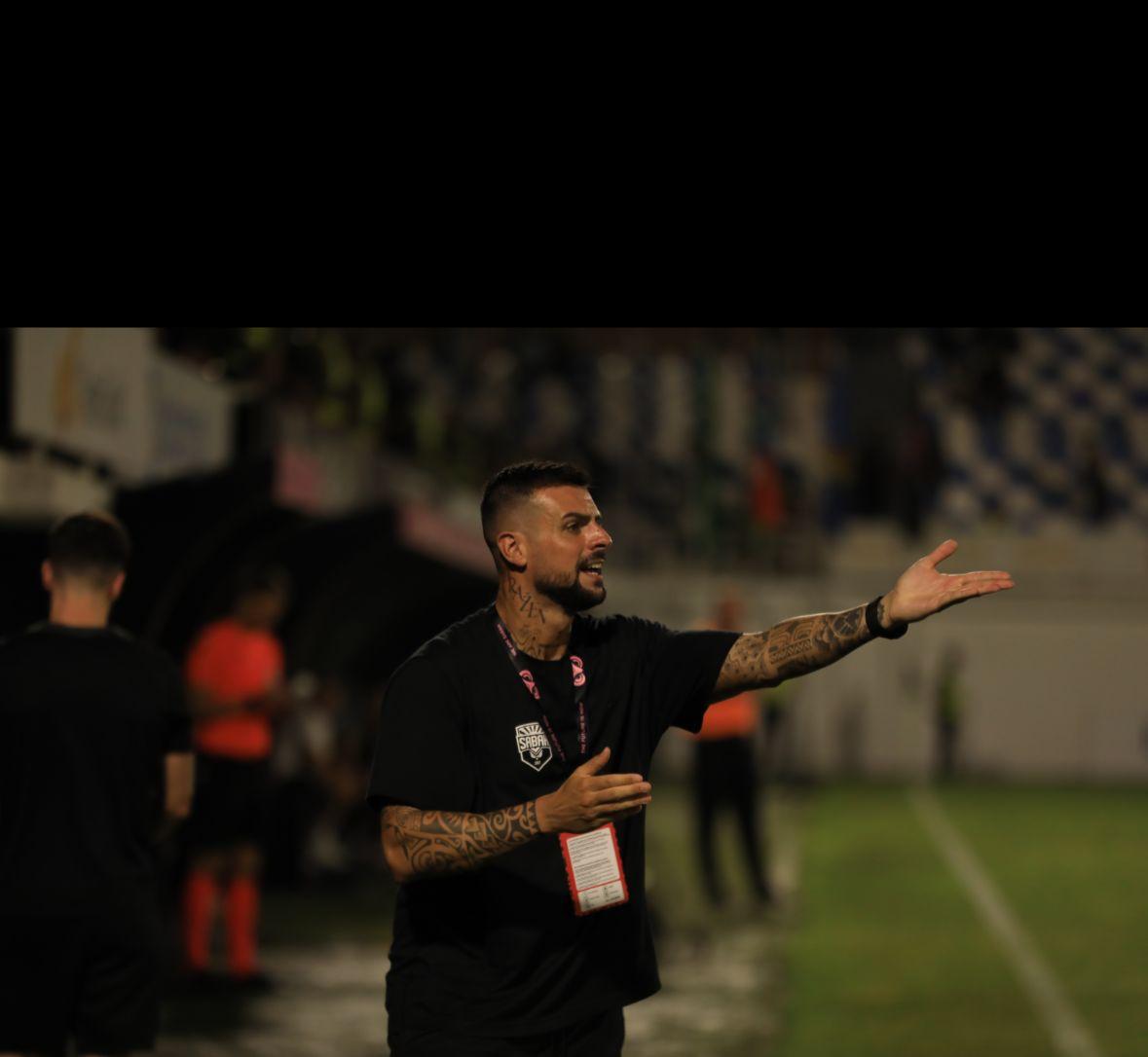
[ I think your career is a lot closer to the norm in professional football than a lot of people realize - do you think this short-term, very immediate results driven mindset is detrimental to clubs and coaches? ]
Look, if I speak about a coach’s perspective, of course, all the coaches ask for time to show themselves, to plan, to create, to build a team. But, I need to be fair, and you need to think about the club side as well - you hire a coach because you want to change something, and you cannot, every time, wait 18 months or 24 months for this change. You need a coach who is able to be effective in the short term.
I think it’s sometimes an easy excuse to say, ‘they didn’t give the coach time’. But you were paid to have an impact, and you need to understand that if you go to a club like Hajduk Split and you lose the first 5, 6, games, what time do you want?
Of course, in a long-term project, you can develop the style of play, but it’s a coach’s job to win games and it’s your job to learn how to do it and be effective even in the short term. So, I’m not always on the side of the coaches who complain about not getting time - football is quick, there is no time.
[ At what point can a coach start to look more into the future and things like developing young players vs the need for immediate results? ]
So, of course, these things sound completely different - to grow and develop players or to get results, but sometimes, it’s not like this. Sometimes, the opportunity comes where there’s an emergency and you need a lot of young players to complete the training session. So, you always check the best players from the academy.
At Sabah, where I’m working now, they are a young club that has made a big effort to develop their academy and we’ve found players who can be useful in the first team - and even the starting 11. If you have an injury and there’s a player from the academy who is already used to training with the first team, a lot of times it’s much faster and more natural to bring them in.
But also, each club works differently in this way too. A lot of clubs will have weekly meetings with the academy and work closely with the head of the academy, or involve the coaches of the first team with the academy. In some clubs, the academy isn’t connected in the same way and has, for example, a different budget, and then you need to be a bit more diplomatic in the relationships with the academy members and sometimes getting a player for training could become a bureaucratic process.
In any case, it’s always nice to have young players debut in the first team - I’ve had several that went from the academy to the top five European leagues.
[ What’s something that’s changed the most about you since you started coaching? ]
I’ve become more practical. Before, I was stuck with having a particular idea and trying to follow it. Now, I say, ‘yes, but not always’, you cannot die with your idea if it’s not working. You need to change so you are able to get the result.
You need to be able to let go of your ego and think about the team. What’s best for my team - getting the result or presenting my idea?
Of course, it’s important to present yourself with some ideas - and everyone has to - but not to the level where it’s the most important thing. Because, in the end, the point is to win football games - everyone wants to win playing well, of course, but if you’re not winning, you’re going to lose your job.
"in the end, the point is to win football games"
[ You’re also bringing your family around the world with you! How does this change your experience? ]
Look, it depends, I could say hard, or I could say exciting, but of course, we all want to stay together, and my family gives me a lot of stability in a world like football, with so many unknowns.
There are practical things that are really hard. For example, when you need to move, sometimes I need to go from one day to the next, so I leave my wife alone with the kids, and she needs to pack all the stuff and take the kids by herself. We need to find new schools for the kids. There’s always a lot of bureaucracy and paperwork. This is the hard part.
But when we are together, we enjoy it, and this is the best part. Of course, the practical things are hard and if you lose the game, you don’t know whether you’re going to be there next month, which is stressful but we’re used to this. We are a real football family, so the kids and my wife already know how it goes and we try to really enjoy all the places we go.
[ Do you keep up with your past clubs? Are you checking the results each week for e.g. Hajduk or Sheriff? ]
Yeah, I’m in contact, I have friends at every club where I’ve been. For example this past year to do the final exam of my A License, I went to Hungary to visit Honved, the club where I was 6 years ago (we won the Hungarian cup together after many years) and found again my former colleagues and friends there - or a few years ago, I went to Scotland to watch a game and found all the guys that I coached and the staff. It’s always good to leave in a good way because then, you’re always welcome.
Yes, I follow the results of all my clubs (especially Hajduk, as I live in Split and my family are big Hajduk fans). It’s good to see how they’re doing because it’s part of your past. In Cyprus, for example, Pafos are now in the Champions League, they have made huge steps forward as a club in a small period of time. I like to see all my clubs getting better and I always support them!
[ How do you think about setting goals for your own career? What do you hope to achieve in the next 5-10 years? ]
Ten years - I'm not able to think so far ahead! I want to be a head coach, that’s for sure, and one day I’m going to try and have this experience. I think, all these years as an assistant with all these coaches in all these countries, it would be a shame for me not to try and see what I’m able to do as a head coach.
But I’m still learning, I’m still on the journey, and I don’t want to rush into a job. Even if I receive calls for a head coach position, I still need to be fully prepared for it and go into a good situation.
[ All of your jobs have been in Europe (/UEFA countries), are you interested in other continents as well? ]
I think how I am made as a person, I can survive anywhere in the world - I speak several languages and can adapt well in any environment. I’ve had the chance to work in European competitions, I’ve played against top clubs all around Europe and I learn how to prepare for these kinds of games.
So, I’m, of course, realistic and know I’m not going to start at Manchester City, but I hope to start in a league that allows me to make the first step and progress in the future in the main markets.
